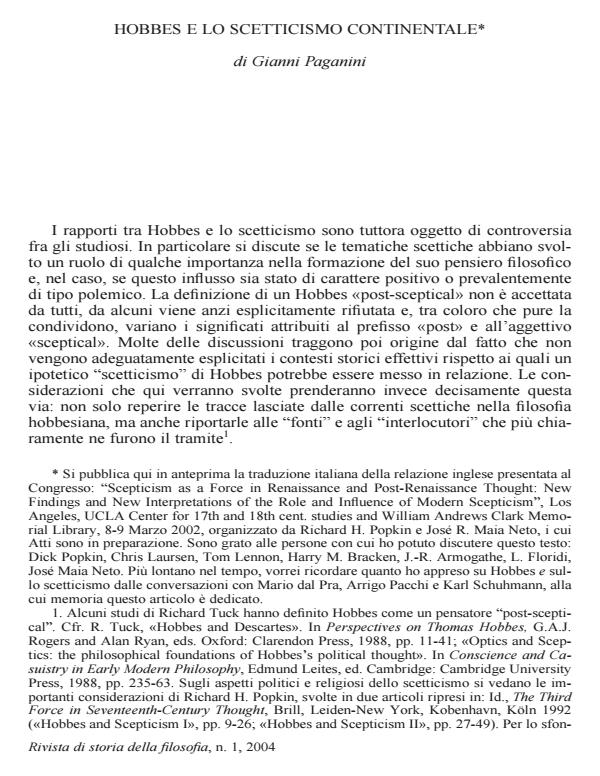Hobbes e lo scetticismo continentale
Journal title RIVISTA DI STORIA DELLA FILOSOFIA
Author/s Gianni Paganini
Publishing Year 2004 Issue 2004/1
Language Italian Pages 26 P. File size 115 KB
DOI
DOI is like a bar code for intellectual property: to have more infomation
click here
Below, you can see the article first page
If you want to buy this article in PDF format, you can do it, following the instructions to buy download credits

FrancoAngeli is member of Publishers International Linking Association, Inc (PILA), a not-for-profit association which run the CrossRef service enabling links to and from online scholarly content.
Gianni Paganini addresses the question of Hobbes's relationship to the skeptical tradition, both ancient and modern. If Hobbes borrows from ancient skepticism the idea that it is impossible to distinguish between dreams and waking perceptions, he owes to Montaigne the idea that our sensations, although they can be misleading, are our only access to knowledge. Gianni Paganini gives a systematic account of Hobbes's skeptical arguments, showing how those arguments are included in a more general dogmatic framework, resting upon the assumption that reason can infer the existence of bodies beyond the appearances or phantasms which are given in perception. Although Hobbes tends to insert skeptical elements in a causal and materialist approach to reality, he nevertheless remains, from De principis to De corpore, indebted to old and new skeptical arguments. To put it in another way, phenomena or appearances are for him our unique access into the real world. Beyond Leviathan, it is therefore Hobbes's whole work which is here presented, along the way opened by Richard Popkin, in the perspective of skepticism.
Gianni Paganini, Hobbes e lo scetticismo continentale in "RIVISTA DI STORIA DELLA FILOSOFIA" 1/2004, pp , DOI: